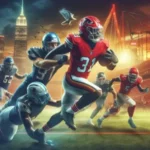In an increasingly complex world filled with information overload, the ability to think critically and analyze situations thoughtfully has never been more essential.
Whether you’re navigating personal decisions, tackling professional challenges, or engaging in meaningful discussions, sharpening these skills can lead to more effective problem-solving and informed decision-making. The right books can serve as invaluable tools in this journey, offering insights from diverse perspectives and fostering a deeper understanding of our surroundings. In this blog post, we’ll explore the top 10 books that not only challenge conventional thinking but also provide practical frameworks for enhancing your analytical prowess. From classic philosophical texts to contemporary guides on cognitive biases, each selection is designed to inspire you to question assumptions, evaluate evidence, and ultimately cultivate a sharper, more discerning mind. Join us as we delve into these must-read titles that promise to elevate your critical thinking game!
1. Introduction: The Importance of Critical Thinking
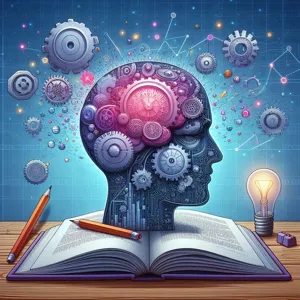
In an age overflowing with information, the ability to think critically has never been more essential. Critical thinking empowers individuals to analyze, assess, and synthesize information rather than simply accepting it at face value. It is the foundation of effective decision-making, problem-solving, and innovation. Whether you’re navigating complex workplace challenges, engaging in constructive debates, or making informed personal choices, honing your critical thinking skills enables you to approach situations with clarity and confidence.
Moreover, critical thinking encourages a mindset of curiosity and skepticism. It prompts you to question assumptions, seek evidence, and evaluate the validity of arguments. This skill is not just about developing a sharp intellect; it’s about cultivating a thoughtful and reflective approach to life. As we are bombarded with diverse perspectives and opinions, the ability to discern the reliable from the unreliable becomes paramount.
Reading is one of the most effective ways to enhance these skills. Books can introduce you to new ideas, challenge your preconceptions, and provide frameworks for thinking more deeply about the world around you. In this blog post, we will explore ten transformative books that can sharpen your critical thinking and analytical abilities, equipping you with the tools you need to navigate complexity and uncertainty with ease. Whether you’re a student, a professional, or simply a lifelong learner, these reads will inspire you to think more deeply and act more wisely.
2. Criteria for Selecting the Best Books
When it comes to selecting the best books to enhance your critical thinking and analytical skills, it’s essential to establish clear criteria that ensure you’re investing your time in truly enriching material. A well-chosen book can serve as a powerful catalyst for intellectual growth, so let’s explore the key factors to consider.
**1. Author Expertise:** Look for books written by reputable authors who possess a strong background in critical thinking, philosophy, psychology, or related fields. An author’s credentials and experience can significantly impact the quality of insights presented.
**2. Practical Application:** Choose books that not only present theoretical concepts but also offer practical strategies and exercises for applying critical thinking in real-life situations. The best books will challenge you to think beyond the page and implement new techniques in your daily life.
**3. Diverse Perspectives:** Seek out books that present a variety of viewpoints and methodologies. Engaging with different perspectives fosters a more comprehensive understanding of complex issues and enhances your ability to analyze arguments critically.
**4. Reader Reviews and Recommendations:** Pay attention to reader reviews and recommendations. Books that have garnered positive feedback from a wide audience often indicate that they resonate well and provide valuable insights. Platforms like Goodreads and Amazon can be great resources for gauging collective opinions.
**5. Clarity and Engagement:** A book that is well-written and engaging will facilitate deeper understanding and retention of concepts. Look for authors who possess the ability to articulate complex ideas in a clear and approachable manner, making it easier for you to absorb the material.
**6. Structured Learning:** Books that are organized with clear sections, summaries, and thought-provoking questions can help guide your learning process. A structured approach allows you to digest information more effectively and encourages active reflection on what you’ve read.
By applying these criteria, you can ensure that the books you select will not only sharpen your critical thinking and analytical skills but also enrich your overall intellectual journey. With the right resources in hand, you’ll be well on your way to becoming a more astute thinker and decision-maker.
3. “Thinking, Fast and Slow” by Daniel Kahneman
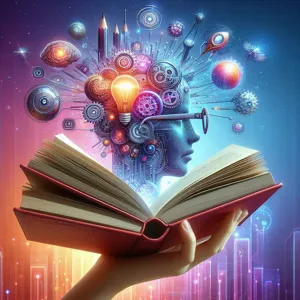
“Thinking, Fast and Slow” by Daniel Kahneman is a profound exploration into the dual systems of thought that govern our decision-making processes. Kahneman, a Nobel laureate in Economics, presents a compelling argument that our brains operate using two distinct modes: System 1, which is fast, instinctive, and emotional; and System 2, which is slower, more deliberative, and more logical.
This book delves into the cognitive biases that arise from these systems, revealing how they can lead us astray in our judgments and choices. Kahneman draws on decades of research in psychology and behavioral economics, presenting case studies and real-world examples that illustrate how our mind often operates in ways that are not always rational.
As you navigate through the chapters, you’ll uncover invaluable insights into how you perceive risk, make decisions, and evaluate information. Kahneman encourages readers to recognize the triggers that activate System 1 thinking—often leading to snap judgments—and to cultivate the habit of engaging System 2 thinking for more thoughtful and reasoned conclusions.
“Thinking, Fast and Slow” is not just a book; it’s a toolkit for sharpening your critical thinking and analytical skills. It challenges you to question your assumptions, understand the mechanics of your thought processes, and ultimately improve your decision-making capabilities in both personal and professional realms. Whether you are a student, a professional, or simply someone eager to enhance your cognitive abilities, this book is an essential read that will leave you with a deeper understanding of how you think.
4. “The Art of Thinking Clearly” by Rolf Dobelli
In “The Art of Thinking Clearly,” Rolf Dobelli invites readers on a captivating journey through the intricate maze of cognitive biases and logical fallacies that often cloud our judgment. This thought-provoking book distills complex psychological concepts into accessible, bite-sized chapters, making it an engaging read for anyone looking to enhance their critical thinking skills.
Dobelli, a successful entrepreneur and writer, employs a storytelling approach that combines real-world examples with insightful observations. Each chapter tackles a specific cognitive error, such as confirmation bias, the illusion of control, and the sunk cost fallacy. He deftly illustrates how these biases affect our decision-making processes, often without us even realizing it. By highlighting these pitfalls, Dobelli equips readers with the tools they need to recognize and mitigate their impact, fostering a clearer, more rational mindset.
What sets “The Art of Thinking Clearly” apart is its practical application. Each chapter not only identifies errors in reasoning but also provides actionable strategies to sidestep them. Whether navigating personal decisions or complex business scenarios, readers will find invaluable insights that encourage a more disciplined, analytical approach to thinking.
This book is more than just a collection of warnings against common mistakes; it’s a roadmap for cultivating clarity in thought processes. Dobelli’s engaging prose and relatable anecdotes make the lessons resonate long after the final page is turned. For anyone eager to refine their critical thinking and analytical skills, “The Art of Thinking Clearly” is an essential addition to their reading list, promising to sharpen the mind and illuminate the path toward better decision-making.
5. “Superforecasting: The Art and Science of Prediction” by Philip E. Tetlock and Dan Gardner
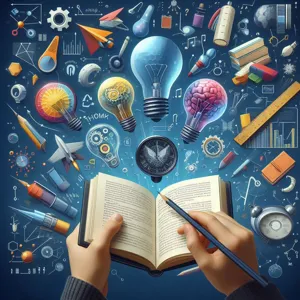
“Superforecasting: The Art and Science of Prediction” by Philip E. Tetlock and Dan Gardner is a groundbreaking exploration into the nuances of forecasting and decision-making. In this compelling read, Tetlock, a renowned psychologist and expert in political psychology, delves into the lives and methodologies of exceptional forecasters—individuals who possess a remarkable ability to predict future events with striking accuracy.
The book introduces the concept of “superforecasting,” which refers to the cognitive skills and habits that distinguish these extraordinary individuals from the average predictor. Through engaging anecdotes and rigorous research, Tetlock and Gardner unpack the principles that drive effective forecasting, including the importance of humility, open-mindedness, and a relentless pursuit of evidence. They argue that success in prediction is less about possessing innate talent and more about adopting a systematic approach to thinking critically about complex problems.
Readers will appreciate the blend of psychological insights and practical strategies, as the authors outline techniques that anyone can adopt to enhance their analytical skills. From breaking down problems into manageable components to revisiting and revising predictions based on new information, “Superforecasting” serves as a powerful guide for anyone looking to sharpen their critical thinking abilities.
Moreover, the book challenges conventional wisdom, urging readers to embrace uncertainty and acknowledge the limitations of their knowledge. By doing so, Tetlock and Gardner empower us to think more clearly and make more informed decisions, both in our personal lives and professional endeavors. Whether you’re a seasoned analyst or someone simply seeking to improve your judgment, “Superforecasting” will inspire you to approach the art of prediction with a fresh perspective and renewed enthusiasm.
6. “How to Read a Book” by Mortimer J. Adler and Charles Van Doren
**6. “How to Read a Book” by Mortimer J. Adler and Charles Van Doren**
In a world overflowing with information, the ability to read critically and thoughtfully is more crucial than ever, and “How to Read a Book” serves as a masterclass in this essential skill. Written by philosopher Mortimer J. Adler and librarian Charles Van Doren, this seminal work goes beyond the mere act of reading; it provides a comprehensive framework for understanding and engaging with texts on a deeper level.
Adler and Van Doren meticulously break down the reading process into four distinct levels: elementary, inspectional, analytical, and syntopical. Each level builds upon the last, equipping readers with strategies to not only comprehend but also to evaluate and synthesize information. The authors emphasize that reading is an active process, one that requires questioning, summarizing, and connecting ideas, rather than passively absorbing content.
One of the standout features of the book is its practical approach. It encourages readers to ask the right questions as they navigate through various genres and forms of writing. From understanding the author’s intent to discerning the structure of arguments, the insights provided are invaluable for anyone looking to enhance their critical thinking skills. Adler and Van Doren also highlight the importance of revisiting texts, arguing that true understanding often requires multiple readings and reflections.
Whether you’re a student seeking to improve your academic performance, a professional looking to sharpen your analytical abilities, or simply a curious reader wanting to make the most of your literary encounters, “How to Read a Book” is an indispensable guide. Its timeless wisdom remains relevant in today’s fast-paced digital landscape, encouraging us to slow down and truly engage with the written word. By embracing the techniques outlined in this book, you’ll not only enhance your critical thinking and analytical skills but also cultivate a lifelong passion for learning.
7. “Critical Thinking: A Beginner’s Guide” by Jennifer Wilson
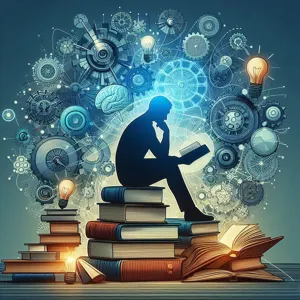
“Critical Thinking: A Beginner’s Guide” by Jennifer Wilson is an essential read for anyone looking to enhance their analytical abilities and approach problems with a more discerning eye. In this inviting and accessible book, Wilson breaks down the complexities of critical thinking into digestible concepts, making it perfect for both novices and those seeking to refine their existing skills.
From the very first chapter, Wilson engages readers with relatable examples and practical exercises designed to challenge assumptions and foster a questioning mindset. The book covers key areas such as logical reasoning, identifying biases, and evaluating arguments, all while encouraging readers to think independently and creatively. Wilson emphasizes that critical thinking is not about being critical for the sake of it; rather, it’s about cultivating curiosity and a desire to understand the “why” behind ideas and decisions.
One of the standout features of this guide is its interactive approach. Each chapter includes thought-provoking questions and scenarios that prompt readers to reflect on their thought processes, helping to cement the concepts in real-world contexts. Whether you’re a student, a professional, or simply someone interested in improving your cognitive skills, Wilson’s book offers a solid foundation for developing a more analytical mindset.
By the time you finish “Critical Thinking: A Beginner’s Guide,” you’ll not only have a stronger grasp of the principles of critical thinking, but you’ll also feel empowered to apply these skills to everyday situations—enabling you to make more informed decisions and engage in meaningful discussions with confidence. This book is a vital addition to your reading list if you’re serious about sharpening your critical thinking and analytical prowess.
8. “The Demon-Haunted World: Science as a Candle in the Dark” by Carl Sagan
In “The Demon-Haunted World: Science as a Candle in the Dark,” renowned astrophysicist Carl Sagan takes readers on a captivating journey through the realms of scientific inquiry and skepticism. This seminal work serves as both a passionate defense of the scientific method and a poignant critique of the pervasive influence of superstition and pseudoscience in society.
Sagan’s eloquent prose and vivid storytelling invite readers to explore the fundamental principles of critical thinking. He emphasizes the importance of questioning, reasoning, and evidence in a world often shrouded in misinformation and magical thinking. With engaging anecdotes and thought-provoking examples, Sagan illustrates how critical thinking can illuminate the darkness of ignorance, acting as a guiding light in our quest for truth.
Throughout the book, Sagan introduces readers to the concept of the “baloney detection kit,” a set of tools designed to help individuals identify flawed arguments and discern credible information. This toolkit empowers readers to navigate the complexities of modern life, encouraging them to adopt a skeptical mindset while remaining open to new ideas.
At its core, “The Demon-Haunted World” is not just a manifesto for science; it is a call to action for all who seek to understand the universe and our place within it. Sagan’s passionate plea for rational thought and scientific literacy resonates deeply, making this book an essential read for anyone looking to sharpen their critical thinking and analytical skills. As you turn the pages, you’ll find that Sagan’s insights not only challenge your perceptions but also inspire a lifelong curiosity about the wonders of the world around you.
9. “The Righteous Mind: Why Good People Are Divided by Politics and Religion” by Jonathan Haidt
In “The Righteous Mind: Why Good People Are Divided by Politics and Religion,” Jonathan Haidt delves into the intricate web of human morality and its profound influence on our beliefs and behaviors. This thought-provoking book offers readers a powerful lens through which to examine the often polarizing divides that characterize modern society. Haidt, a social psychologist, draws upon a rich tapestry of research, anecdotes, and philosophical insights to illuminate why seemingly rational individuals can hold vastly different views on fundamental issues.
At the heart of Haidt’s exploration is the concept that our moral intuitions shape our political and religious affiliations more than we might realize. He introduces the metaphor of a rider on an elephant, where the rider represents our logical reasoning and the elephant symbolizes our emotional and instinctive responses. This vivid imagery serves as a reminder that our decisions often stem from deep-seated beliefs rather than mere logical analysis.
What makes “The Righteous Mind” particularly valuable for developing critical thinking skills is Haidt’s call for empathy and understanding in the face of disagreement. He encourages readers to step outside their own perspectives and engage with opposing views, fostering a more nuanced understanding of complex social issues. Through this approach, Haidt equips readers with the tools to dissect arguments, identify biases, and engage in constructive dialogue, all essential skills for sharpening analytical thinking.
Ultimately, this book is more than just an exploration of morality; it is an invitation to reflect on our own beliefs and the ways in which we engage with others. By challenging our assumptions and embracing a broader view of the human experience, we can cultivate a more thoughtful, compassionate approach to discourse—an essential skill in today’s interconnected world. “The Righteous Mind” is a vital read for anyone looking to refine their critical thinking abilities while navigating the complexities of human belief systems.
10. “A More Beautiful Question: The Power of Inquiry to Spark Breakthrough Ideas” by Warren Berger
In “A More Beautiful Question: The Power of Inquiry to Spark Breakthrough Ideas,” Warren Berger invites readers on a transformative journey into the heart of questioning. This insightful book explores the profound impact that asking the right questions can have on our lives, creativity, and problem-solving abilities. Berger argues that cultivating a mindset of inquiry is essential for developing critical thinking skills. Through engaging anecdotes and thought-provoking examples, he illustrates how the art of questioning can lead to innovative solutions and new perspectives.
At its core, the book encourages readers to embrace curiosity as a powerful tool for personal and professional growth. Berger emphasizes that the quality of our questions often determines the quality of our outcomes. He guides us through the process of reframing our thinking—from simple, surface-level inquiries to deeper, more meaningful questions that challenge assumptions and provoke thought.
One of the most compelling aspects of “A More Beautiful Question” is its practical application. Berger provides readers with a framework for asking better questions in various contexts, whether in business, education, or everyday life. By learning to ask questions that matter, readers can unlock their potential for critical analysis and creative problem-solving.
In a world that often prioritizes quick answers over thoughtful inquiry, Berger’s book serves as a reminder of the value of curiosity. It inspires readers to not only seek answers but to question the very nature of those answers. As you dive into this enlightening read, prepare to sharpen your analytical skills and discover the beauty that lies within asking the right questions. Whether you’re a student, a professional, or simply someone looking to enhance your thinking abilities, this book is a must-read that promises to reshape your approach to inquiry and learning.
11. “Smart Thinking: How to Think Creatively to Solve Problems” by Ian J. Agolley
“Smart Thinking: How to Think Creatively to Solve Problems” by Ian J. Agolley is an essential read for anyone looking to elevate their problem-solving skills and enhance their creative thinking. In this insightful book, Agolley delves into the intricacies of the human thought process, offering a roadmap for navigating the complexities of decision-making and innovation.
The author emphasizes that critical thinking is not just about analyzing facts; it’s about cultivating a mindset that embraces curiosity and creative exploration. Agolley provides readers with practical strategies to break free from conventional ways of thinking, urging them to challenge assumptions and explore alternative perspectives. Through engaging anecdotes and real-world examples, he illustrates how smart thinking can be applied across various contexts—whether in business, personal life, or academic pursuits.
One of the standout features of this book is its interactive approach. Agolley includes thought-provoking exercises and self-assessment tools that encourage readers to actively engage with the material. This hands-on methodology not only reinforces the concepts discussed but also empowers readers to apply these techniques to their own challenges.
As you immerse yourself in “Smart Thinking,” you’ll discover how to harness your creative potential, develop innovative solutions to complex problems, and ultimately sharpen your analytical skills. This book is not merely a guide—it’s an invitation to rethink your thinking and unlock a world of possibilities. If you’re ready to shift your mindset and approach challenges with renewed vigor and creativity, Ian J. Agolley’s work is a must-add to your reading list.
12. “Being Logical: A Guide to Good Thinking” by D.Q. McInerny
“Being Logical: A Guide to Good Thinking” by D.Q. McInerny is an invaluable resource for anyone looking to sharpen their critical thinking and analytical skills. In this concise yet impactful book, McInerny distills complex philosophical concepts into clear, actionable insights that can be applied in everyday decision-making.
The book begins with a thorough exploration of the principles of logic, emphasizing the importance of sound reasoning in both personal and professional contexts. McInerny skillfully navigates through the various types of reasoning, from deductive to inductive, helping readers recognize the strengths and weaknesses of each method. His approachable writing style ensures that even those unfamiliar with formal logic can grasp the foundational concepts.
One of the standout features of “Being Logical” is its practical application. McInerny offers readers tools and frameworks to evaluate arguments critically, identify logical fallacies, and construct coherent arguments of their own. This is particularly useful in today’s information-saturated environment, where the ability to discern credible information from misleading claims is more important than ever.
Throughout the book, McInerny emphasizes the value of clarity in thought and expression, urging readers to cultivate a habit of questioning assumptions and seeking evidence. Each chapter is punctuated with thought-provoking exercises that challenge readers to apply what they’ve learned, making it not just a theoretical exploration, but a hands-on guide to becoming a better thinker.
In a world where critical thinking is essential for navigating complex issues, “Being Logical” stands out as a must-read. Whether you’re a student, a professional, or simply someone eager to enhance your cognitive skills, McInerny’s guide will equip you with the necessary tools to think more clearly and make more informed decisions. By the end of this enlightening read, you’ll find that you not only have sharpened your analytical skills but also gained a greater appreciation for the art of logical thinking.
13. Conclusion: Applying Critical Thinking in Everyday Life
As we conclude our exploration of the top 10 books designed to enhance your critical thinking and analytical skills, it’s essential to reflect on the broader implications of these skills in everyday life. Critical thinking is not merely an academic exercise; it’s a vital tool that equips us to navigate the complexities of the modern world. Whether you’re making decisions in your personal life, solving problems at work, or engaging in discussions with friends and family, the ability to think critically can transform your approach to challenges.
Incorporating the lessons gleaned from these insightful reads can lead to profound changes in how you perceive and interact with the world. By questioning assumptions, evaluating evidence, and considering multiple perspectives, you empower yourself to make informed choices that align with your values and goals. Moreover, applying critical thinking fosters a culture of open-mindedness and intellectual curiosity, encouraging those around you to engage in deeper conversations and explore ideas collaboratively.
Start small—practice questioning the information you encounter daily, whether it’s news articles, social media posts, or even conversations. Challenge yourself to seek out diverse viewpoints and analyze the reasoning behind them. Over time, these habits will not only sharpen your analytical skills but also enrich your understanding of the complexities surrounding various issues.
Ultimately, the journey of developing critical thinking skills is ongoing and deeply rewarding. By immersing yourself in the recommended readings and actively applying these principles in your everyday life, you’ll not only enhance your own cognitive abilities but also inspire others to engage thoughtfully with the world around them. Embrace the challenge and watch as your perspective broadens, your decisions become more sound, and your interactions with others deepen, paving the way for a more insightful and fulfilling life.
14. Additional Resources for Continued Learning
As you embark on your journey to sharpen your critical thinking and analytical skills, it’s essential to recognize that books alone may not suffice. While the titles we’ve explored in this list provide a solid foundation, the world of knowledge is vast, and there are numerous additional resources available to enhance your understanding and application of these skills.
**Online Courses and Workshops**: Platforms like Coursera, edX, and LinkedIn Learning offer a plethora of courses designed to strengthen your analytical abilities. Many courses are taught by industry experts and cover topics ranging from logical reasoning to data analysis. Participating in these interactive sessions not only enriches your learning experience but also provides you with practical exercises to apply what you’ve learned.
**Podcasts and Webinars**: The rise of podcasts has transformed the way we consume information. Shows focused on critical thinking, problem-solving, and decision-making can provide invaluable insights from thought leaders in various fields. Additionally, many organizations host webinars that dive deep into specific topics, allowing you to engage with content and ask questions in real time.
**Discussion Forums and Book Clubs**: Engaging with others who share your interest in critical thinking can significantly enhance your learning. Consider joining online forums or local book clubs where you can discuss the themes and techniques presented in your readings. These discussions can challenge your perspectives, introducing you to new ideas and approaches that you may not have considered on your own.
**Articles and Journals**: Regularly reading articles from reputable sources, such as academic journals, industry publications, and think tanks, can keep you informed about the latest research and theories in critical thinking and analytical skills. Websites like JSTOR or Google Scholar can provide access to a wealth of scholarly resources that delve deeper into the concepts introduced in your reading.
**Practice, Practice, Practice**: Lastly, one of the best ways to hone your critical thinking skills is through consistent practice. Engage in activities that require analytical reasoning, such as puzzles, games, or even strategic planning in your personal or professional life. The more you challenge yourself to think critically, the more proficient you will become.
Incorporating these additional resources into your learning plan will not only reinforce the concepts found in the books you read but also help you develop a well-rounded skill set that will serve you in various areas of your life. Embrace the journey of continuous learning, and watch as your critical thinking and analytical skills flourish!
15. Call to Action: Join the Conversation on Critical Thinking
As you embark on your journey to sharpen your critical thinking and analytical skills, we invite you to join the conversation. Engaging with others who share your passion for knowledge and inquiry can significantly enhance your learning experience. Whether you’re a seasoned thinker or just starting to explore the depths of critical analysis, sharing insights and discussing ideas can provide fresh perspectives and inspire new ways of thinking.
We encourage you to connect with us on social media platforms or in our comment section below. Share your favorite books from our list, discuss concepts that challenged you, or recommend other titles that have influenced your critical thinking journey. Your experiences and insights could spark curiosity and motivation in others, creating a vibrant community of learners.
Additionally, consider joining online forums or book clubs dedicated to critical thinking. These spaces offer opportunities to engage in meaningful discussions, ask questions, and delve deeper into the themes explored in the books. Whether it’s a local group meeting, an online community, or even a social media platform dedicated to literary discussions, these interactions can foster a supportive environment where ideas flourish.
Let’s cultivate a culture of questioning and analysis together. What strategies have you found effective in honing your critical thinking skills? What challenges have you faced? Join us as we explore these questions and more—your voice matters in this exciting conversation!
In conclusion, we hope this curated list of the top 10 books to sharpen your critical thinking and analytical skills has inspired you to embark on a journey of intellectual growth. Each of these titles offers unique insights and methodologies that can transform the way you approach problems and make decisions. By immersing yourself in these thought-provoking works, you’ll not only enhance your ability to analyze complex situations but also cultivate a more inquisitive and open-minded perspective on the world around you. So, pick up a book, engage with its ideas, and watch as your critical thinking skills flourish, empowering you to tackle challenges with confidence and clarity. Happy reading!


